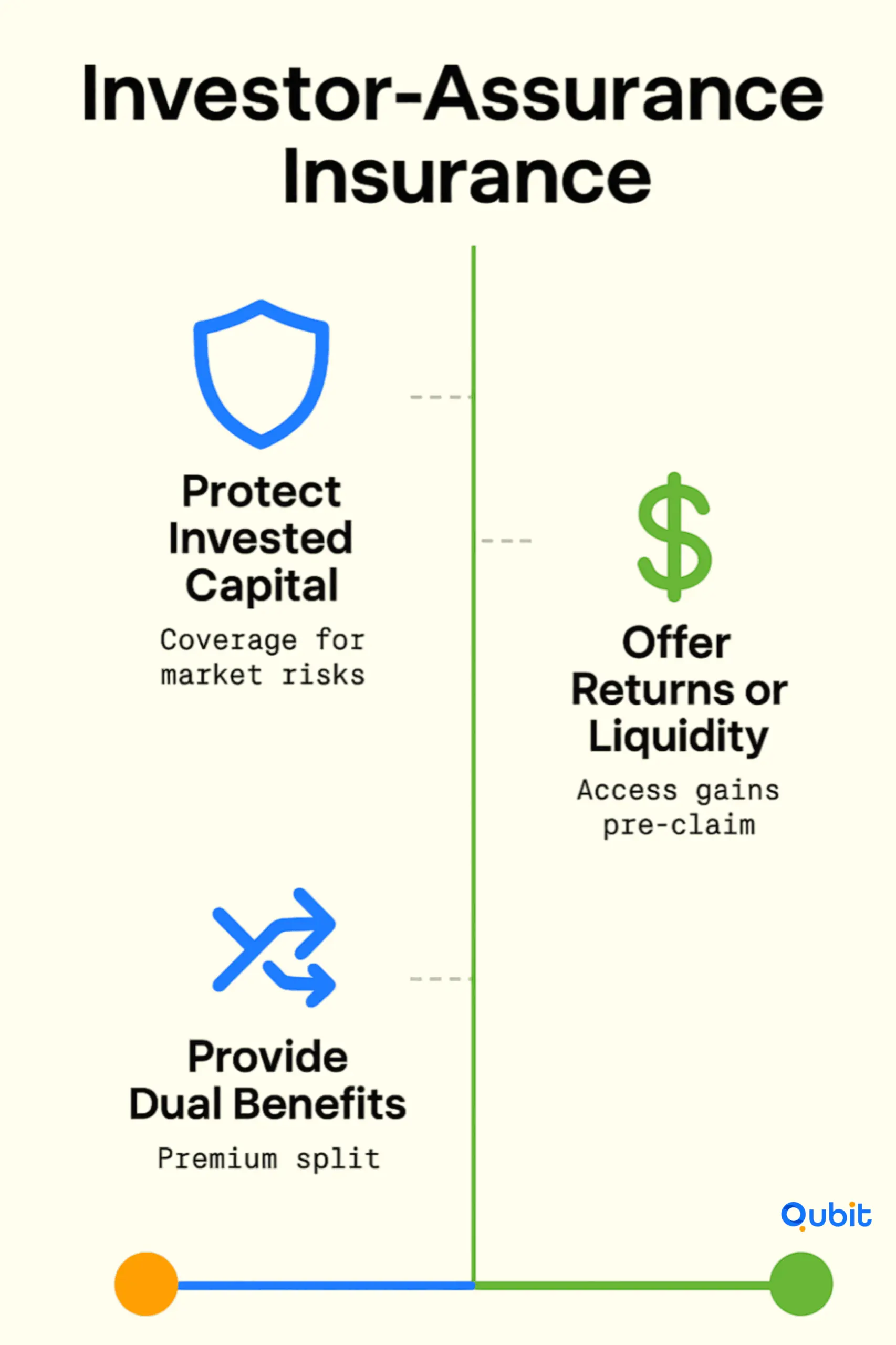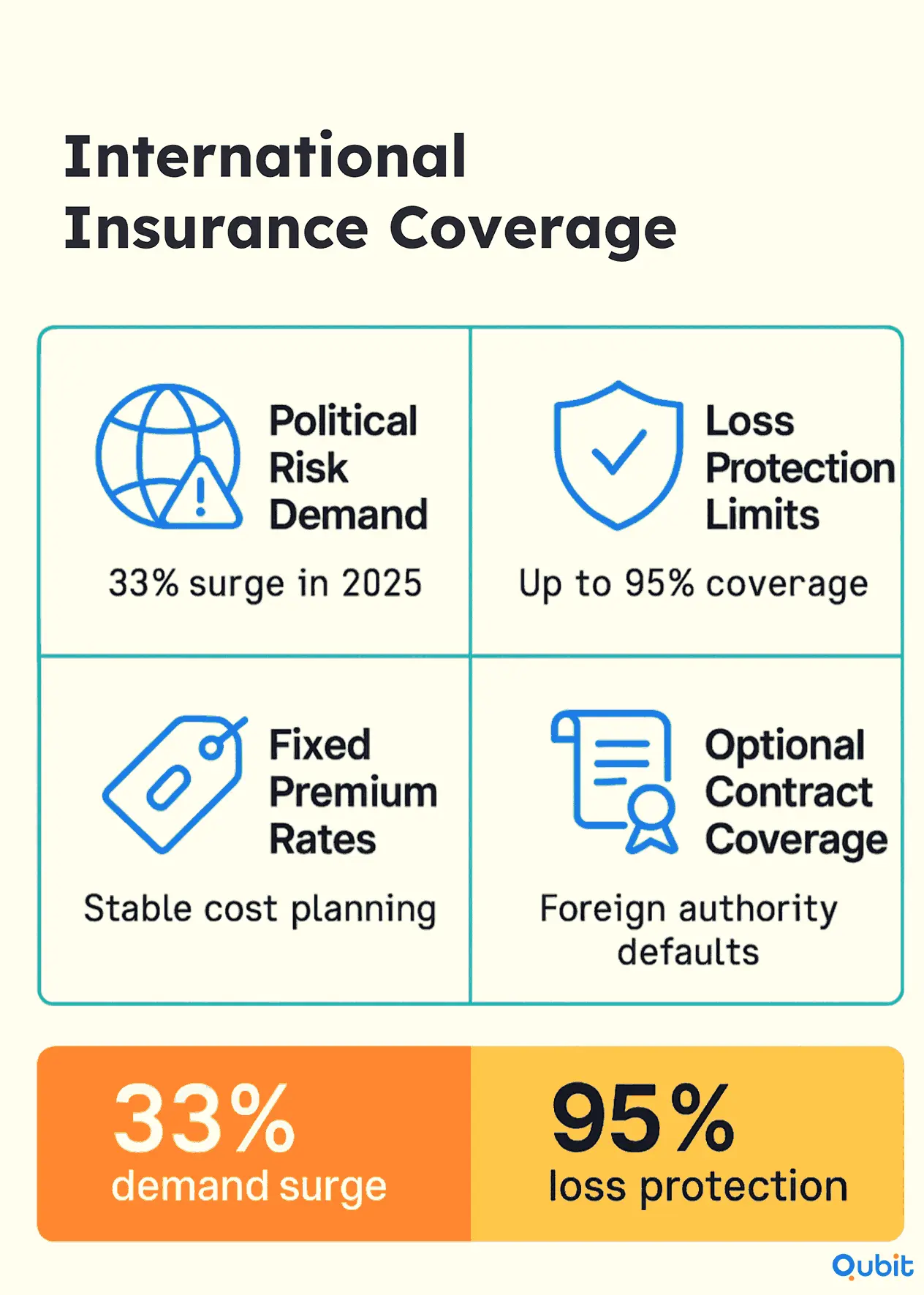In a sector defined by regulatory complexity, high capital requirements, and investor skepticism, founders must go beyond a great idea to win investor trust. One powerful, often overlooked tool in this journey is investor-assurance insurance: a strategic solution that mitigates risks, reassures investors, and can tip the scales in your favor during fundraising.
You can appreciate how key person insurance vcs angels contributes to mitigating leadership risks, reinforcing a strategy that directly addresses investor concerns. This article explores the unique challenges insurance startups face, the types of investors you’ll encounter, and actionable strategies, including the use of investor-assurance insurance—to help you successfully raise capital and scale your business.
Let’s dive into the essentials of this innovative approach and uncover how it’s reshaping the landscape of insurance for start-ups.
What Is Investor-Assurance Insurance?
Investor-assurance insurance is a specialized product that combines the protective features of traditional insurance with the growth-oriented benefits of investment coverage. Unlike standard policies that only pay out after a loss, these plans are structured to:

- Protect invested capital against specific risks (e.g., regulatory changes, leadership transitions, political instability, or market disruptions).
- Offer returns or liquidity options to investors, sometimes allowing access to investment gains even before a claim event occurs.
- Provide dual benefits: A portion of the premium goes toward risk coverage, while the remainder is invested, growing the value of the policy over time.
This dual approach not only secures the investor’s stake but also signals operational maturity and risk management sophistication to future backers.
Why Is Investor-Assurance Insurance Important for Startups?
Startups, especially in regulated or high-growth sectors, are exposed to risks that can undermine investor confidence and jeopardize funding rounds. Key reasons to consider investor-assurance insurance include:
- Risk Mitigation: Protects investor capital from losses due to unforeseen events such as regulatory actions, market downturns, or catastrophic losses.
- Enhanced Credibility: Demonstrates to potential investors that the startup is proactive about risk management, making it a more attractive investment prospect.
- Facilitates Fundraising: By reducing perceived risks, startups can negotiate better terms and attract a broader pool of investors.
- Supports Global Expansion: For startups operating or investing across borders, these policies can cover political risks, expropriation, and currency inconvertibility, enabling safer international growth.
- Peace of Mind: Investors and founders alike gain security, allowing them to focus on growth rather than potential setbacks.
How Does Investor-Assurance Insurance Work?
- Risk Identification: The startup and insurer assess key risks that could impact investor returns or capital.
- Policy Structuring: The insurance policy is tailored to cover specific risks, such as non-payment, political upheaval, leadership changes, or compliance failures.
- Premium Allocation: Part of the premium funds the insurance coverage; the rest is invested in market-linked or fixed-income instruments, offering potential returns.
- Claims and Returns: If a covered event occurs, the insurer compensates the investor or startup for losses. If not, the investment portion may generate returns, providing additional value.
- Flexibility: Many plans allow for premium flexibility, fund switches, and additional riders for enhanced protection.
Key Benefits of Investor-Assurance Insurance for Startups
- Dual Protection and Growth: Safeguards capital while enabling wealth creation through market-linked investments.
- Flexible Premiums and Coverage: Startups can increase premiums to boost investment returns or add riders for specific risks.
- Asset Protection: Shields assets from market volatility, operational disruptions, or catastrophic events.
- Investor Confidence: Builds trust and transparency, often tipping funding decisions in the startup’s favor.
- Regulatory and Compliance Support: Many policies are structured to help startups meet regulatory requirements, further reassuring investors.
Case Example: How Investor-Assurance Insurance Secured a Funding Round
A fintech startup planning to expand into emerging markets faced investor hesitation due to political and regulatory uncertainties. By securing an investor-assurance insurance policy covering expropriation and non-transfer risks, the startup reassured its backers, enabling it to close a $10 million Series A round with favorable terms. The insurance policy not only protected the investor’s capital but also enhanced the startup’s reputation as a risk-aware, globally minded business.
Investment Insurance Strategies
Long-term international investments come with inherent risks, ranging from political instability to operational challenges. Investor assurance insurance provides a robust safety net to protect businesses and financial institutions from these uncertainties. Designed specifically for French-law companies and credit institutions, these policies offer tailored coverage to mitigate potential losses and ensure financial stability.
Comprehensive Coverage for International Risks

Investor assurance insurance is particularly valuable for businesses venturing into foreign markets. It shields investors from a range of risks, including property damage, non-payment, expropriation, and political violence. For example, political risk insurance, a subset of investment insurance, has seen a 33% surge in demand in 2025, highlighting its importance in volatile global markets.
Policies typically cover up to 95% of the investor’s loss of an asset or receivable, ensuring substantial protection against unforeseen events. Fixed premium rates throughout the policy term provide predictability, allowing businesses to plan their finances without worrying about fluctuating costs. Additionally, optional coverage is available for non-fulfillment of contractual commitments by foreign authorities, offering an extra layer of security for high-stakes investments.
At Qubit Capital, we understand the complexities of securing funding while managing risks. If you're ready to solidify investor relations and secure funding with robust risk management solutions, we invite you to explore our Investor Discovery and Mapping service. Let us help you navigate the path to sustainable success with confidence.
Flexible Guarantee Undertakings
To accommodate the complexities of international investments, these policies include flexible guarantee undertakings. A guarantee undertaking is issued and remains valid for six months, with the possibility of extension until the investment is finalized. This flexibility ensures that businesses have adequate time to complete due diligence and finalize their investment plans without compromising coverage.
Supporting Risk Mitigation
Investor assurance insurance complements other risk mitigation strategies, such as directors officers insurance investors. Your review of directors officers insurance investors reveals how D&O insurance aligns with risk mitigation approaches by buffering potential legal liabilities linked to executive decisions. Together, these policies create a comprehensive framework for safeguarding investments and executive accountability.
Additionally, businesses looking to secure funding for innovative insurance solutions can benefit from insights on insurance startup fundraising strategies, which provide foundational strategies for navigating the unique challenges of the insurance industry.
Strategic Partnerships and Corporate Collaboration
Forming alliances with established insurers, reinsurers, or corporate venture arms can be transformative for insurance startups. Such partnerships provide access to capital, regulatory expertise, and distribution networks, while also enhancing credibility in the eyes of investors. For example, large financial institutions often invest in or acquire insurtech startups to drive innovation and expand their service offerings. These collaborations can take the form of co-developed products, joint ventures, or direct investments, all of which help startups scale faster and manage risk more effectively
Integrating Investor-Assurance Insurance Into Your Fundraising Strategy
- Assess Your Risk Profile: Identify the main risks that could threaten investor capital or business continuity.
- Consult With Experts: Work with insurance advisors to structure a policy tailored to your startup’s needs and investor expectations.
- Communicate Proactively: Highlight your insurance coverage in pitch decks, due diligence materials, and investor meetings.
- Leverage for Negotiations: Use your risk management strategy to negotiate better funding terms and attract a wider range of investors.
Conclusion
Investor-assurance insurance is more than a safeguard, it’s a strategic asset for startups seeking to raise capital and build lasting investor relationships. By integrating these policies into your fundraising approach, you not only protect your business and your backers but also set your startup apart in a competitive funding landscape.
If insurance is your moat, let’s make it your headline. With Qubit’s fundraising assistance services for insurance, you’ll get a thesis-led deck, the right investor list, and warm intros, diligence feels like confirmation, not interrogation.
Key Takeaways
- Investor assurance insurance mitigates political, regulatory, and operational risks for start-ups.
- Provides coverage up to 95% of potential investment losses along with fixed premium rates.
- Enhances investor confidence by managing risks associated with global market uncertainties.
- Integrates advanced documentation and regulatory compliance for informed decision-making.
- Supports global expansion and strategic partnerships through diversified product offerings.
Frequently asked Questions
What is investor assurance insurance?
Investor assurance insurance is a tailored policy designed to protect start-up investments from risks such as political instability, regulatory changes, and operational disruptions. It provides coverage for potential losses, ensuring peace of mind for investors.






